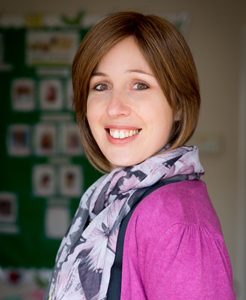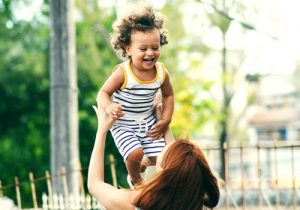Supporting effective ‘school readiness’ within all children
7th February 2018
Share this entry:

With a long history supporting practice, the key areas I am consistently asked to offer advice and guidance on is meeting the demands of preparing children for their next stage in a process commonly coined as ‘School Readiness’. With memories of similar frustrating demands from my own years in practice this area of consultancy has quickly become the focus of my research and writing.
Demands for getting children ‘ready to learn’ consistently arouse deep tensions in the profession, flying as it does in the face of deeply held beliefs regarding children’s holistic development and abilities to learn from birth. There is no doubt, children who start school well, happy to explore, to take risks and experiment, even when making mistakes, start school with a belief in their own abilities. They have a greater chance of future success, unlocking their potential with repercussions felt throughout a lifetime. However, preparing children for the rigours of formal education is a process often grossly misunderstood.
With adult prospects recognisable within skills and abilities already established at 22-months-old, the influential impact of effective parenting, the environment, health and well-being and every facet of early childhood care and education is clear. With direct impact on language acquisition, self-
Being prepared to transition into a formal school environment with many developmental, individual, interactional and contextual challenges is the right and need of every child. But to realise this, key personal attributes and relevant experiences need embedding throughout early childhood, securing the building blocks needed for future success. It must no longer be rooted in a deficit model that involves unrealistic assessments of children’s true abilities, resulting in headlines announcing children as somehow ‘unready to learn’.
More helpful is the realisation that children are born ready and eager to learn. By recognising children’s diversity and their wide-ranging abilities and skills, we can harness features relevant to successful learning throughout life – not just those of importance for transitioning into formal education.
My latest book Developing School Readiness, Creating Lifelong Learners and a key area of my research and consultancy work focuses on what I have come to recognise as the 16 features of lifelong learning. By recognising and nurturing these features throughout the key phases of children’s early life we can nurture the highest aspirations for all children in ways that can combat otherwise limited life experiences. By understanding the relative ease with which vital early experiences can be offered to all children we can lay the building blocks for the more complex learning environments that will follow.
For more information and practical guidance on developing the features of lifelong learning please access my book, Developing School Readiness, Creating Lifelong Learners or get in contact at www.kathrynpeckham.co.uk.
Kathryn is speaking at Childcare Expo London on Friday 2nd March. Book your seats today!
Why attend Childcare Expo?
Join over 2,500 like-minded individuals from the early years sector who are dedicated to improving both practice and their childcare settings.
Attend educational seminars to credit your CPD
Meet the experts to have your questions answered
Receive fantastic onsite offers and discounts
Experience expert-led informative hands-on workshops
Network with peers and industry players
Pick up hundreds of new product ideas and services
And most of all, enjoy a great day out with your colleagues




